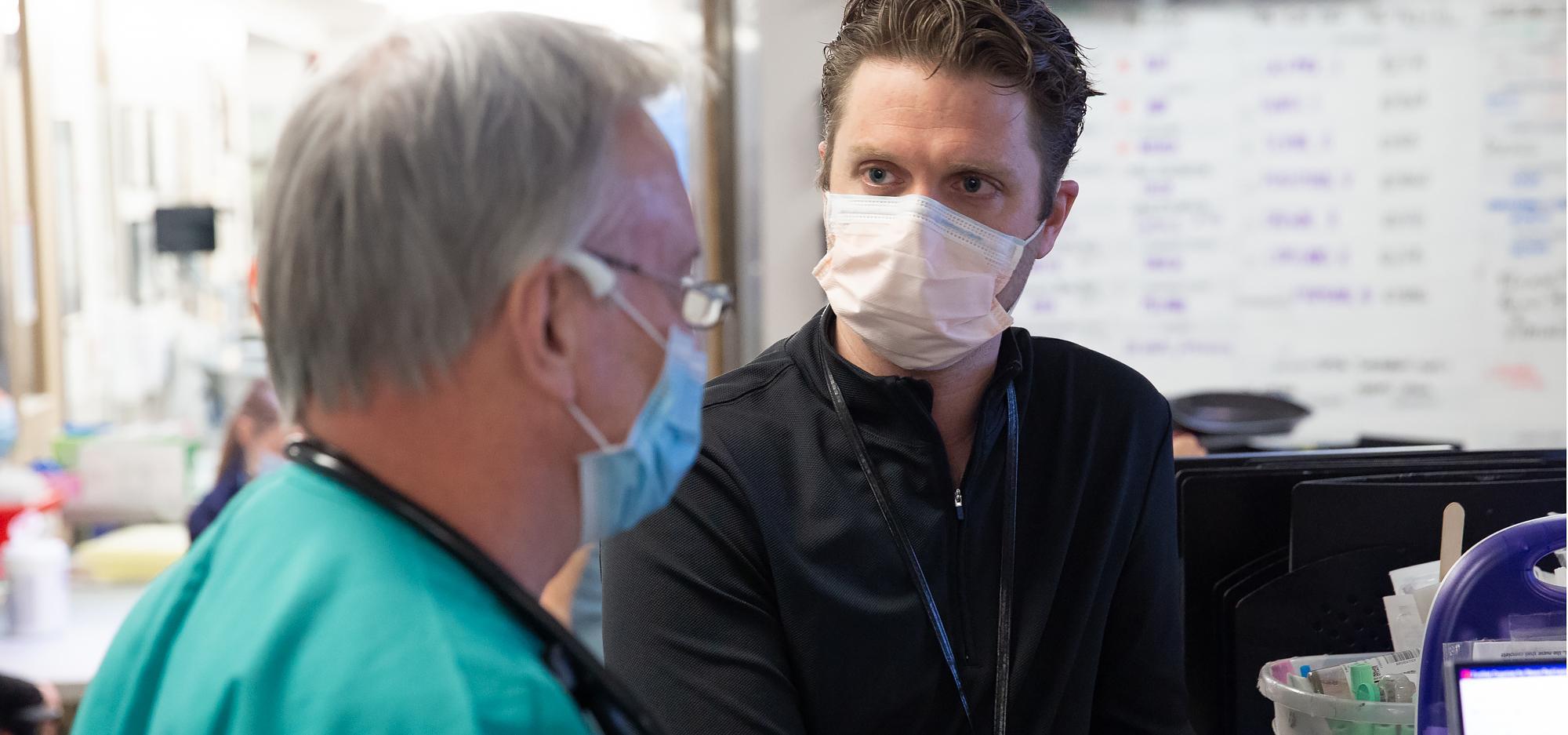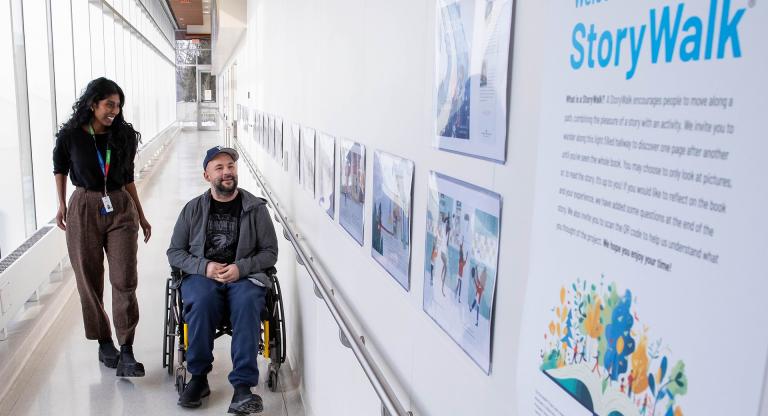Two years into the pandemic mental health is still a priority

In 2020, when the COVID-19 pandemic was declared, Sinai Health introduced resiliency coaches to help our front-line care teams at Mount Sinai Hospital and Hennick Bridgepoint navigate new situations, concerns and stress that stemmed from working in a hospital during a global pandemic.
Resiliency is the result of a range of supportive factors at multiple levels. Although individuals can develop healthy habits and skills that support mental health such as taking down-time, exercising and engaging in supportive relationships, the purpose of these coaches was to take the pressure of finding this support off of our people.
Two years later, this extra layer of mental health support is still being offered. The coaching has evolved in order to adapt to the changing needs of the care teams across hospitals. In response, our resiliency coaches continued to provide in-person and virtual group sessions, meetings and skill sessions to help our people cope with feelings of frustration and fatigue.
Dr. Robert Maunder, Chair in Health and Behaviour, Deputy Psychiatrist-in-Chief & Head of Psychiatry Research at Sinai Health, believes that the psychological effects of the prolonged pandemic will be on-going. “There will most likely be pressure to ‘return to normal’ as quickly as we can as the risk of the virus itself declines, which we are already beginning to see,” he notes. “During the pandemic we have tried to support ourselves and each other in ways that are extraordinary. I think we need to maintain that focus on wellness during a long period of recovery that will be less dramatic and less visible than the onset of the pandemic was.”
May 2-8, 2022 is observed as Mental Health week across Canada. For resources on mental health visit MentalHealthWeek.ca












